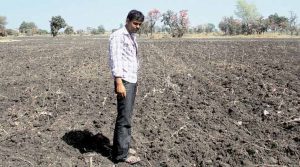Water is the new oil…meaning that moving forward conflicts over resources will concern water. The finite amount of water, growing world population and continued climate change will force us to make some tough decisions in the near future. One of these tough decisions involves poppy farmers in Afghanistan. It is easy and not necessarily wrong to conclude that growing poppy is illegal and should not be done. However, there is another side to this story.
Many farmers in Afghanistan have started growing poppy in recent years because that is the only crop that will survive and may be the only way they have to survive currently. The farmers are in a tough spot and they come to mind when thinking about the idea of a triple inequality. They didn’t contribute much to climate change or get to reap the rewards of those who did. They live in an area of the world that doesn’t have a temperature buffer or the infrastructure to combat the oncoming heat. The climate in their region, including the political climate, leaves them with little options. It’s hard to blame an afghan farmer for planting popping if that is the only crop that will grow. They have to survive. An uneasy association with armed actors is better than starving. It is another example that the poorer you are the more your focus shifts to the present…they can’t afford to think about the future.

Many of the widespread hunger occurrences in history have had more to do with politics than agriculture. The situation in Afghanistan is no different. If the government allowed the crop to grow they could be the farmer’s partner instead of the armed criminals. Assuming corruption is derailed, this could allow for necessary infrastructure and transportation funding to enable the region to move toward food dependency. The effects of climate change are still not entirely known, so this would all be speculation but it could lead to a future where the afghan farmers have an actual choice to grow poppy or not.
Land and water are like air, they are resources that our planet has provided us so that we can have life. They belong to all living beings, not just those who have economic means. In the film Silent Killer, Belo Horizonte’s hunger program director Adriann Orrana articulated the issue perfectly. “Food is not a material luxury, it’s more like the air we breathe. If people don’t eat, they don’t live. It’s different than owning a car or a TV.” Her words have convinced me that food should be viewed as a birthright and because land and water are required to grow food, they should be birthrights as well. People share oxygen all the time without giving it a second thought because they don’t attach ownership to it, food is thought of as a possession today (at least in western cultures) but I think that is changing.
Ghatwai, Milind. “Opium Crop Failure: No high for these farmers in times of drought.” The Indian Express, 17 March 2016, http://indianexpress.com/article/india/india-news-india/opium-crop-failure-theres-no-high-for-these-farmers-in-times-of-drought/.
